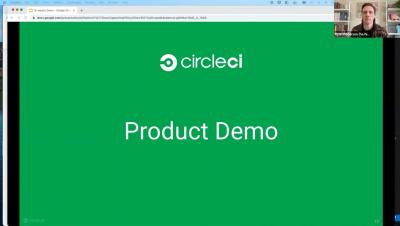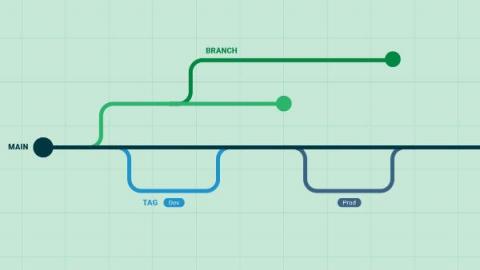Operations | Monitoring | ITSM | DevOps | Cloud
March 2023
CircleCI Technical Demo + Q&A
Intro to Config Migration
Open sourcing the CircleCI Language Server
The official CircleCI extension for Visual Studio Code is now available for anyone to download on the VS Code Marketplace. This extension was developed by the Developer Experience team of CircleCI and it includes two sets of features: the pipeline manager and the config helper. The config helper provides language support for CircleCI YAML files.
Automating deployment to an EKS cluster using CircleCI and Helm Charts
Kubernetes is a container orchestration system for automating deployment and managing containerized applications. Helm is a Kubernetes package manager that helps you define, install, and upgrade Kubernetes applications. It lets you define reusable templates for Kubernetes components (deployment, service, hpa, service account, etc.) that can be published and shared across applications. In this tutorial, you will learn how to build and install Helm charts for your application to an AWS EKS cluster.
What is Helm? A complete guide
Helm is a tool that automates the creation, packaging, configuration, and deployment of Kubernetes applications by combining your configuration files into a single reusable package. In a microservice architecture, you create more microservices as the application grows, making it increasingly difficult to manage. Kubernetes, an open source container orchestration technology, simplifies the process by grouping multiple microservices into a single deployment.
Brief guide to end-to-end testing
Automatically manage keys and secrets on CircleCI
Git tags vs branches: Differences and when to use them
Version control systems are valuable tools for tracking and managing changes to software projects. They record every modification to software code and store the complete project history in a database, enabling developers to collaborate, experiment with new features, and roll back changes when necessary. Git is the most widely used version control system today.
Automate GitHub stats reporting with scheduled pipelines
Release notes provide essential documentation when a new software version is released. For release notes to be most effective, dev teams must consolidate all of the work that has been done since the previous release. It is a hectic task that requires a lot of effort and time sorting through weeks or even months of software issues and pull requests. Why not make the life of the release team easier by automating the creation of release notes?
Build on Apple silicon with M1 support for CI/CD pipelines
Apple developers across the globe leverage CircleCI’s vast selection of macOS resources to swiftly build, test, and deploy software. Today, CircleCI introduced its first M1 resource to provide customers with record-breaking build speed that will bring their software delivery to the next level.












